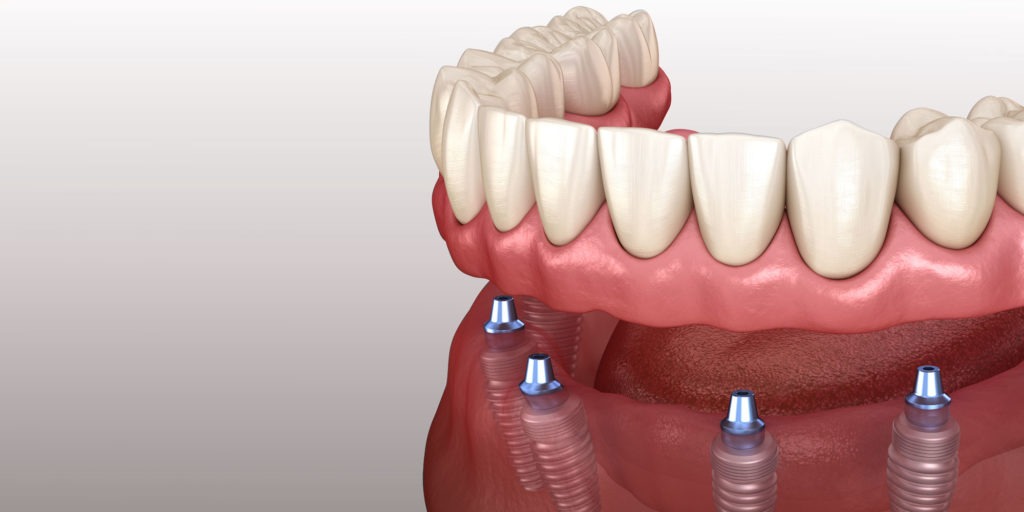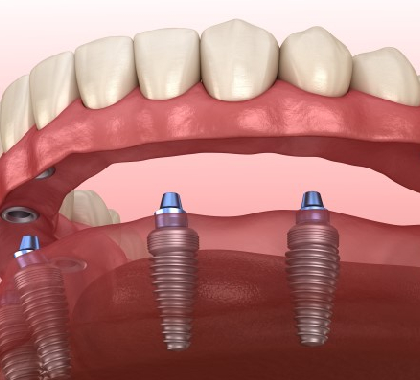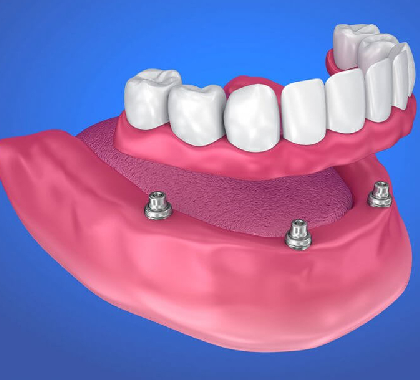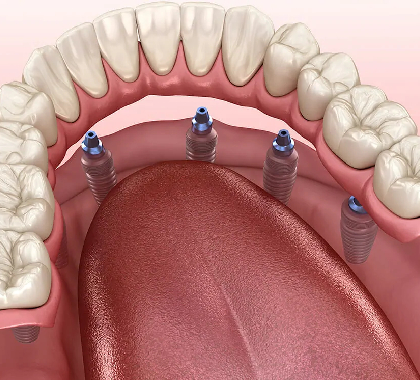Implant-supported dentures represent a modern advancement in dental prosthetics, offering a more stable and comfortable alternative to traditional dentures. Unlike conventional dentures that rest on the gums, implant-supported dentures are anchored to the jawbone through dental implants. These implants are surgically placed into the jawbone and serve as a sturdy foundation for the denture, significantly improving its stability and reducing the risk of slippage. This type of denture can be used for both the upper and lower jaws but is particularly beneficial for lower jaw dentures, where traditional dentures tend to be less stable. Implant-supported dentures provide a more natural feeling and functioning solution, allowing wearers to eat, speak, and smile with greater confidence and comfort. They also help preserve jawbone health by providing stimulation that prevents bone loss.

In Patna, Dr. Sukhpreet Kaur stands out for her expertise in providing implant-supported dentures, revolutionizing the way patients experience dentures. Her clinic harnesses advanced dental technology to offer a more stable, comfortable, and natural-looking alternative to traditional dentures. Dr. Kaur’s approach involves a detailed consultation and planning process, ensuring a perfect fit and optimal functionality of the implant-supported dentures. Her patients benefit from a significant improvement in their quality of life, enjoying the confidence that comes with a secure, durable solution for missing teeth. Under Dr. Kaur’s care, the transition to implant-supported dentures is seamless, restoring not just smiles but also enhancing overall dental health and well-being.
Implant Supported Dentures F&Q's
What Are Implant-Supported Dentures?
Implant-supported dentures are a type of overdenture that, unlike traditional dentures, are supported by and attached to implants. They provide a more stable and comfortable solution for those missing several or all of their teeth.
How Do Implant-Supported Dentures Differ from Traditional Dentures?
Unlike traditional dentures that rest on the gums, implant-supported dentures are anchored to dental implants surgically placed in the jawbone, offering improved stability, reduced bone loss, and a more natural feel and function.
Who Is a Good Candidate for Implant-Supported Dentures?
Ideal candidates are those with sufficient jawbone to support implants, good oral health, and non-smokers, or those willing to quit, as smoking can affect the healing process.
What Is the Process for Getting Implant-Supported Dentures?
The process typically involves several steps, including consultation and planning, implant placement surgery, healing time to allow for osseointegration (the process by which the implant fuses with the jawbone), and finally, the fitting and adjustment of the denture.
How Do I Care for My Implant-Supported Dentures?
Care involves regular brushing, flossing around the implants, and dental check-ups. Although the dentures are not subject to decay, proper hygiene is crucial to prevent gum disease and ensure the longevity of the implants and denture.
What Are the Benefits of Implant-Supported Dentures Over Traditional Dentures?
Benefits include improved comfort and speech, enhanced ability to eat a wider range of foods, prevention of bone loss in the jaw, and no need for denture adhesives. Implant-supported dentures also offer a more secure fit, reducing the fear of dentures slipping or falling out.











